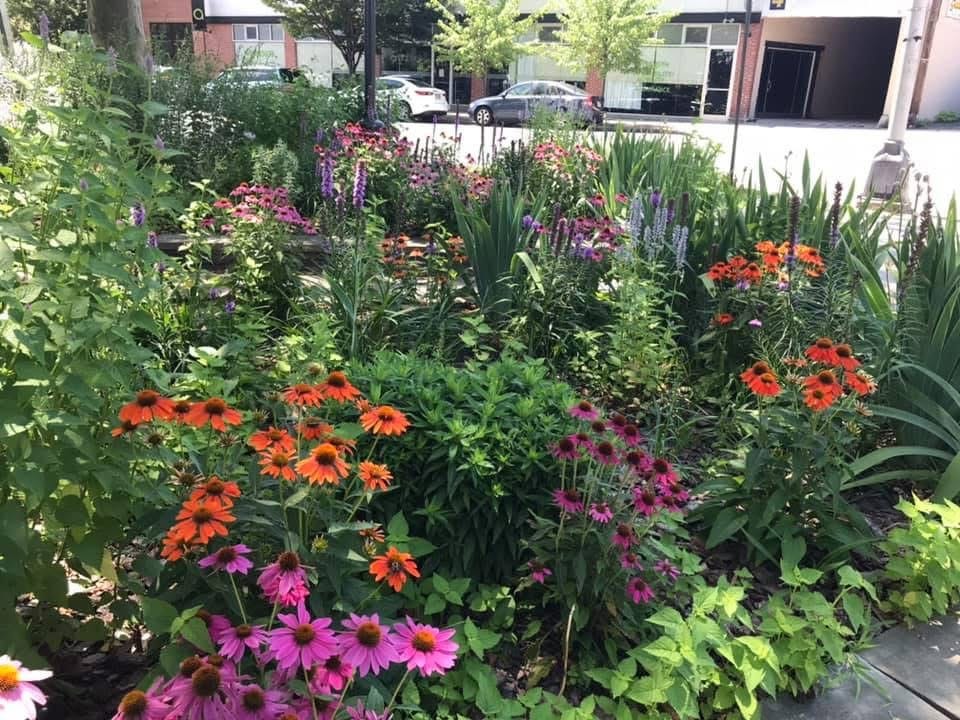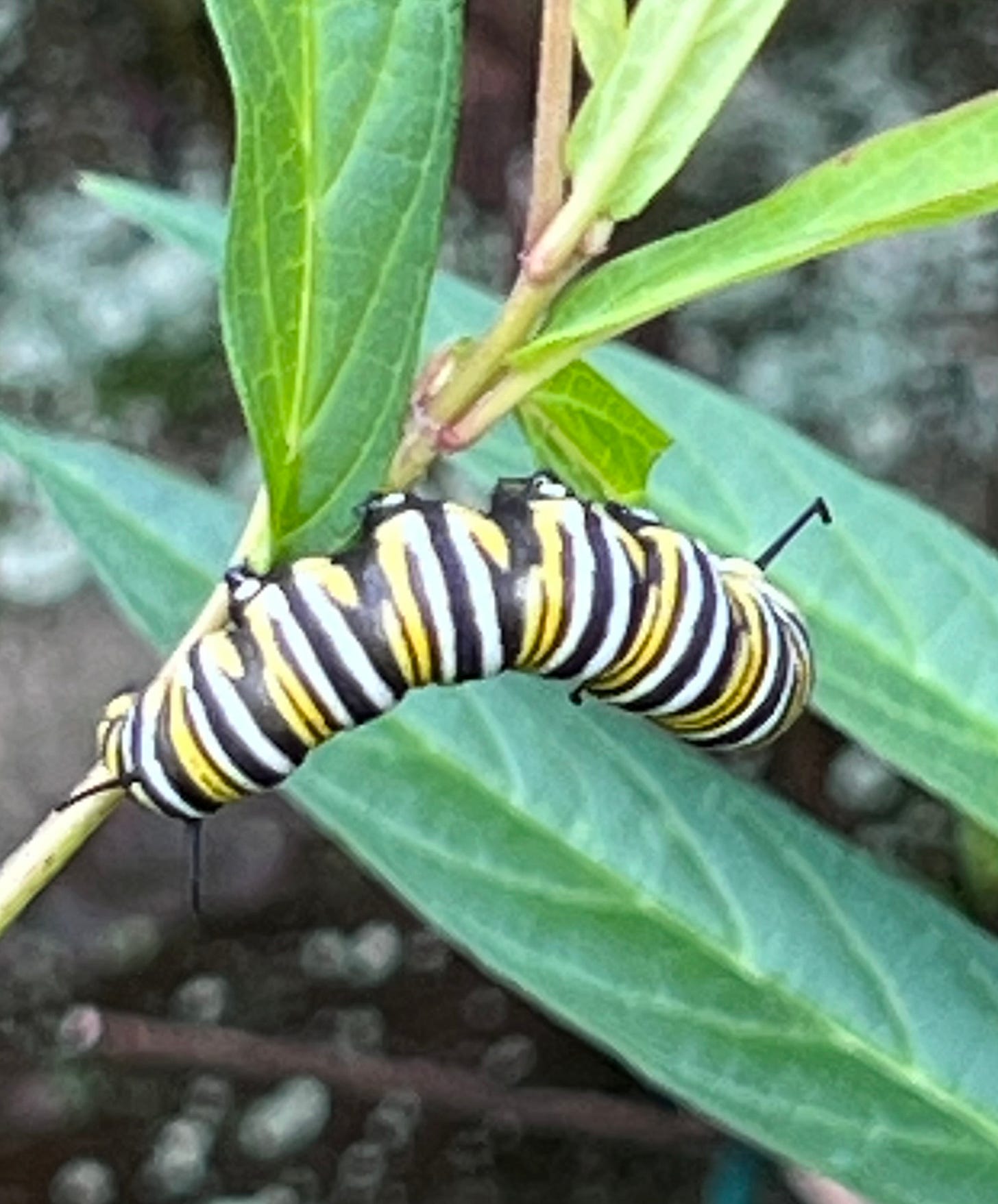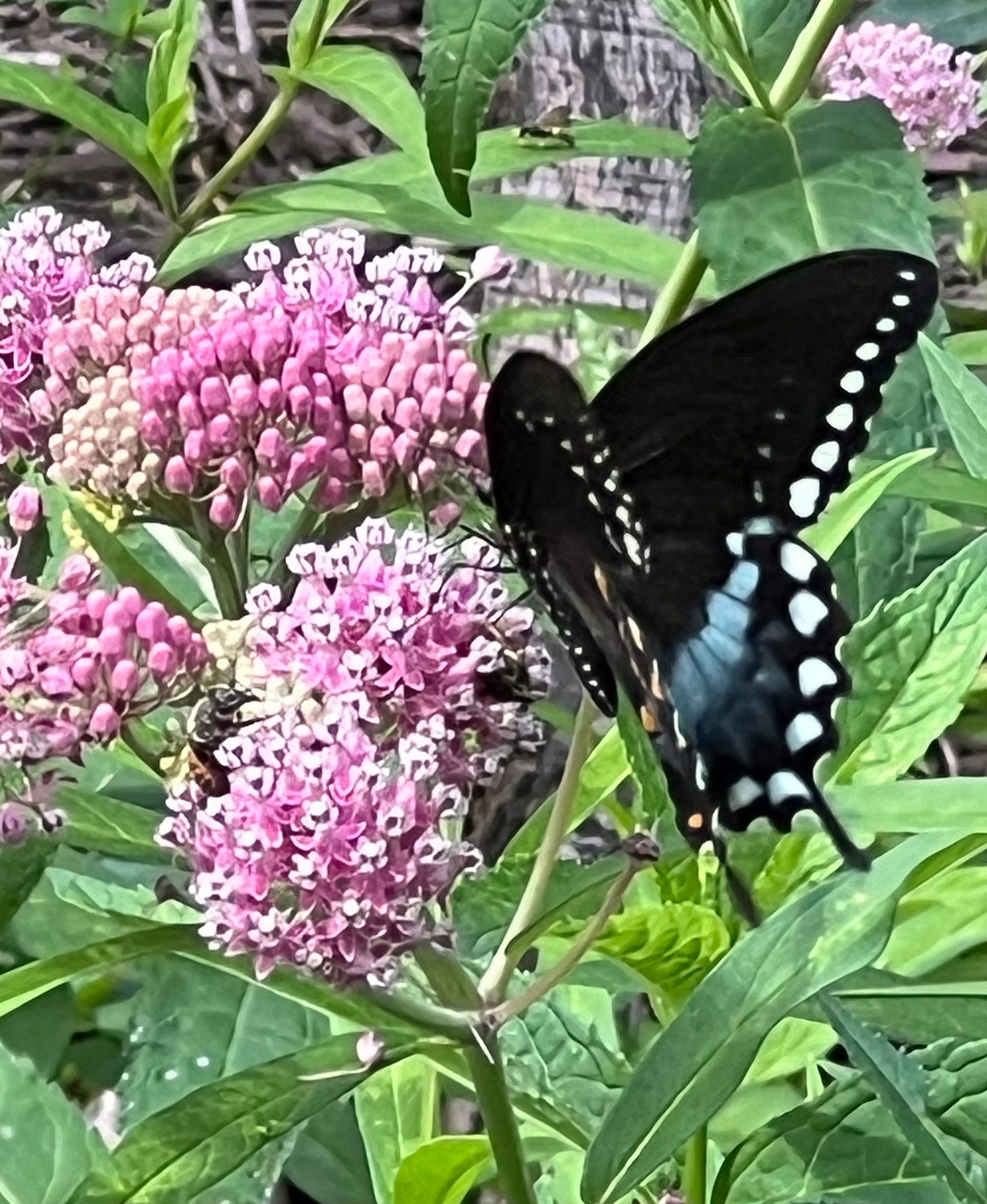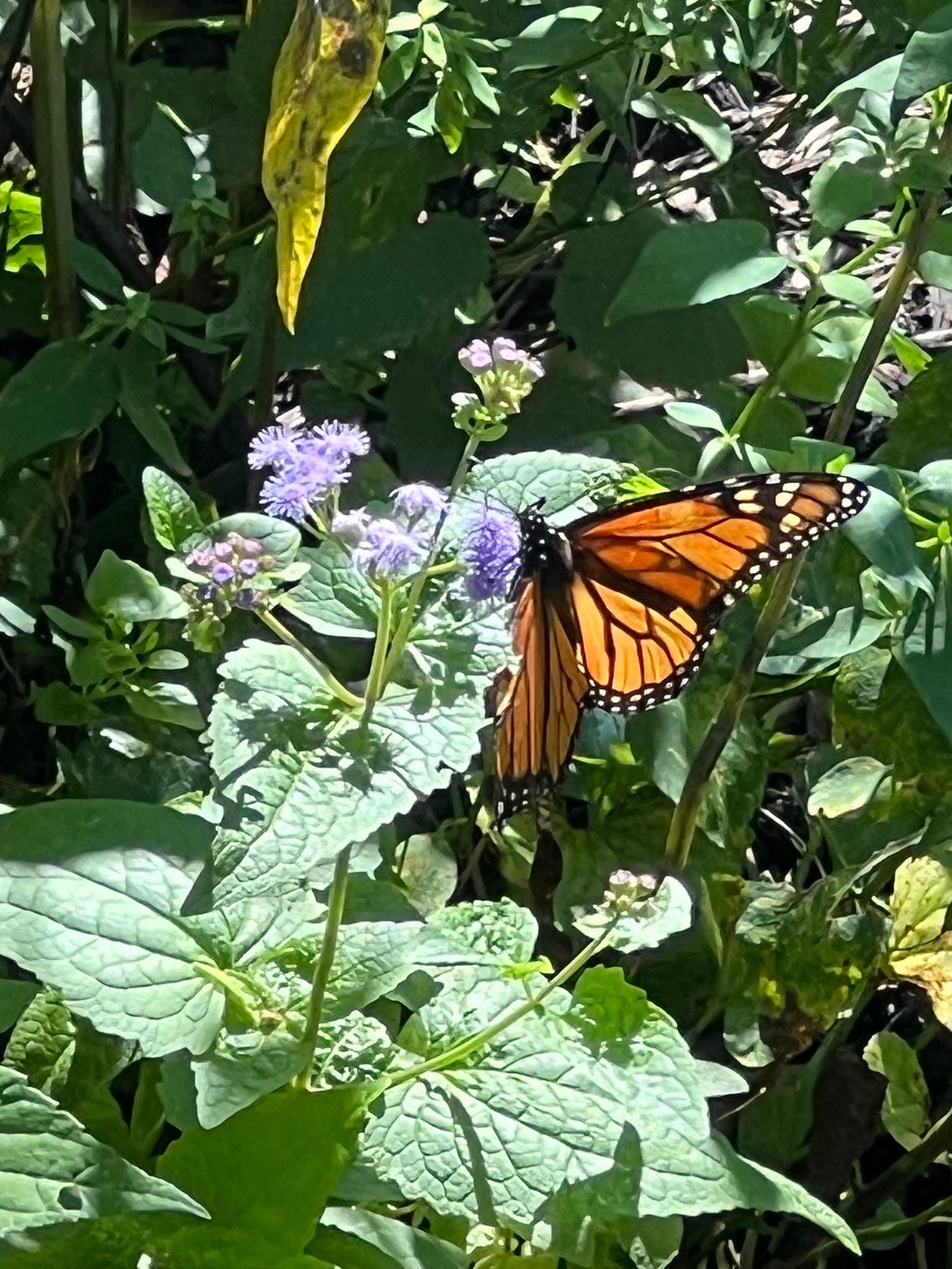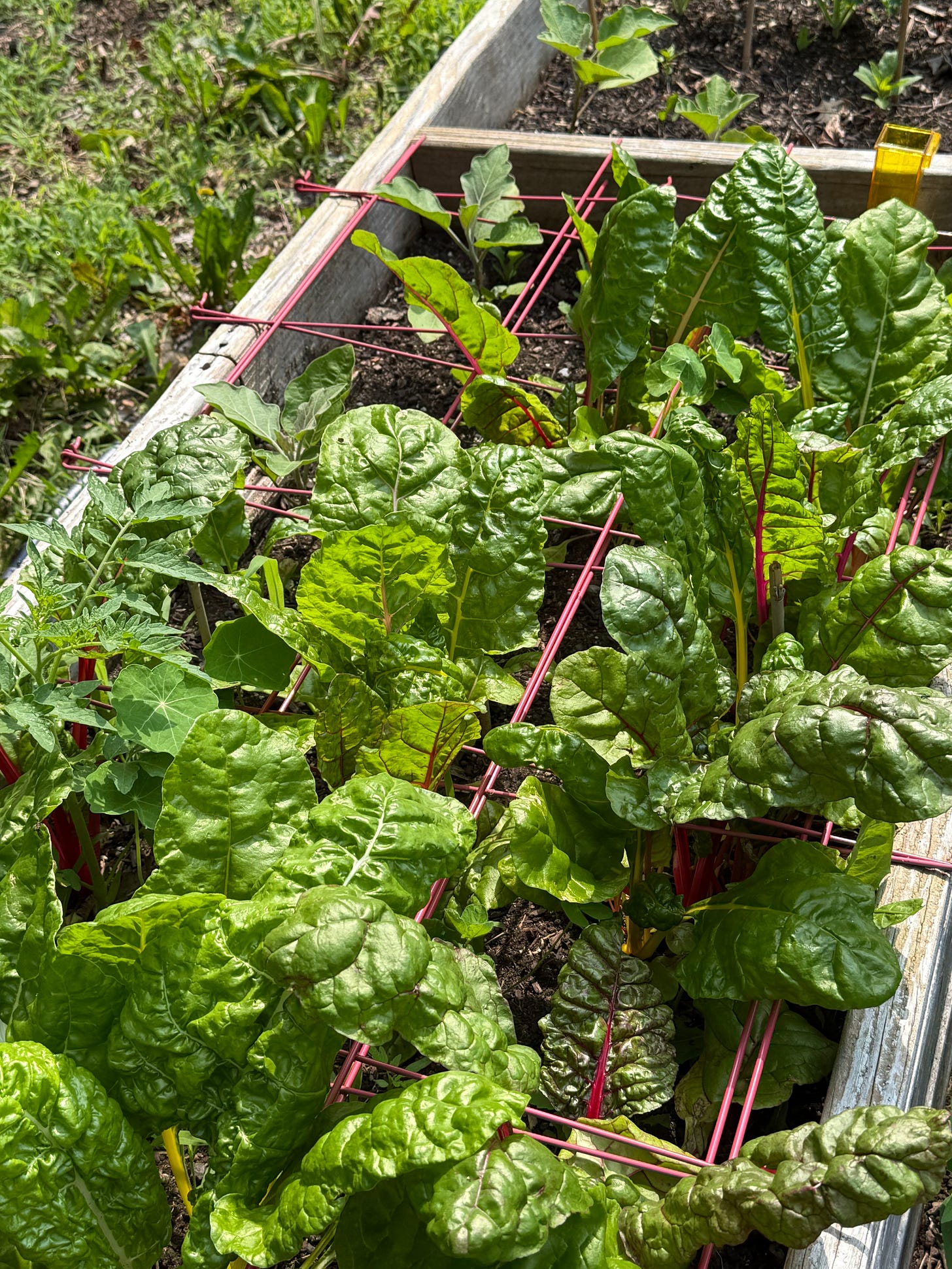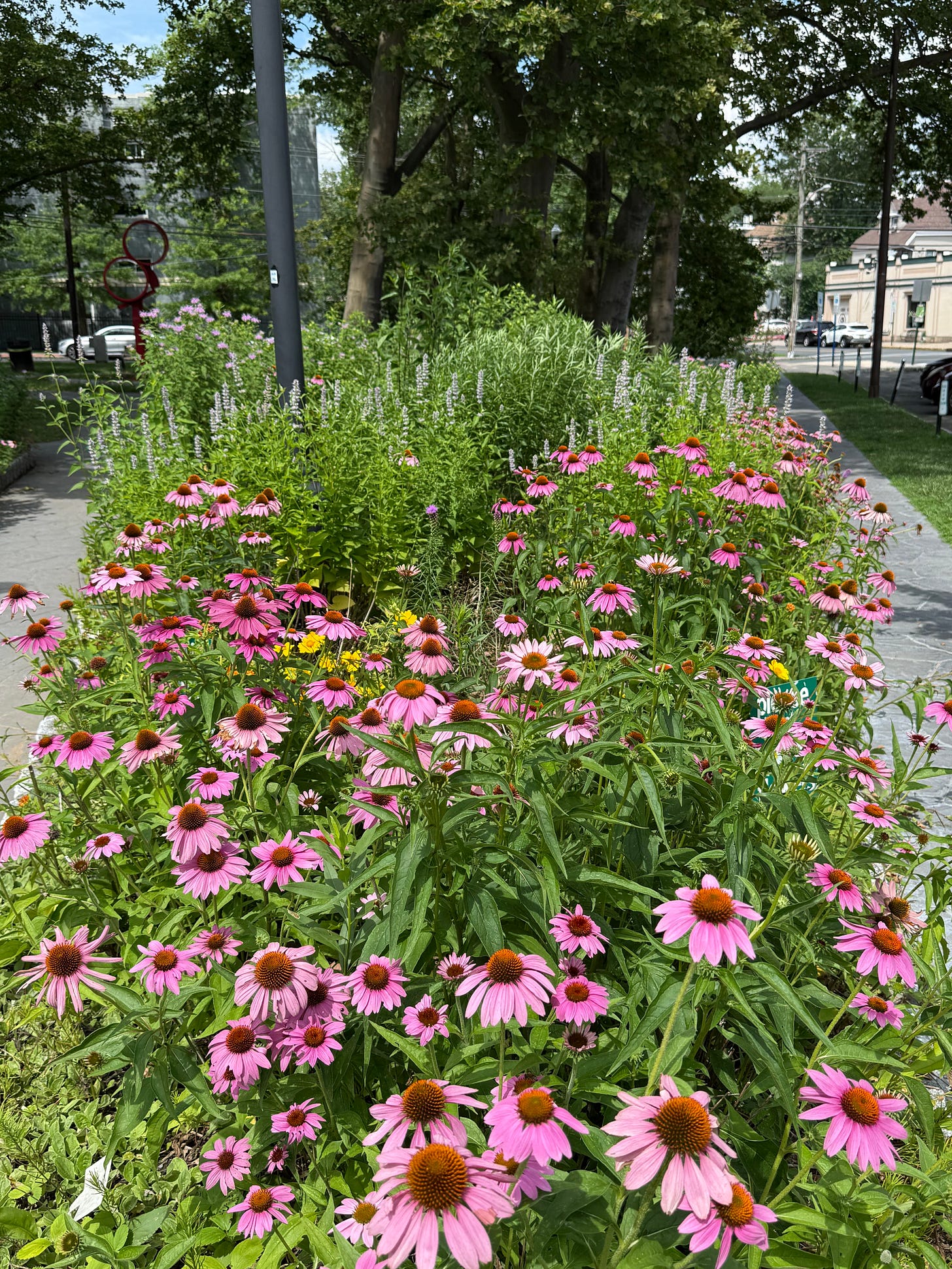Local Food Production
Local food production is good for the environment, increases sustainability, and builds community. Community gardens and urban farms can help make fresh produce accessible to all residents. Local food production fosters a sense of community and strengthens resilience against food insecurity.
Community gardens are often spearheaded by local organizations and volunteers who work together to plant, maintain, and harvest crops. Such initiatives both provide food and create valuable opportunities for social interaction. These gardens can be established in vacant lots, schoolyards, and even rooftops, making efficient use of urban spaces. Locally, Montclair is lucky to have organizations that produce organically grown local food like the Northeast Earth Coalition (NEEC), Montclair Community Farm, MSU Community Garden, and some of our public schools, including Montclair High School.
Besides addressing immediate needs, local food production educates participants about sustainable agriculture. Workshops and training sessions can be organized to teach people about composting, organic farming, and the importance of biodiversity. Empowering people with these skills makes communities more self-sufficient and environmentally conscious. The NEEC has a Community Composting Program with ten locations in town, most of them at community gardens and churches. This long-term program educates people about the importance of composting and how to do it.
Case Study: Detroit’s Urban Gardens vs Township of Montclair
Detroit, a city that has faced significant economic challenges, has seen remarkable success with its urban gardening initiatives. Organizations such as the Detroit Garden Resource Program have transformed vacant lots into thriving gardens, providing fresh produce to thousands of residents. These efforts have resulted in improved health outcomes, strengthened community ties, and increased environmental awareness.
Although Montclair passed an ordinance in 2017 promoting community gardens, we do not have a piece of public land for food cultivation. Approximately 40% of Montclair residents reside in rental units, and most apartment dwellers lack space for gardening. Montclair residents need space to grow food and help reduce the burden of rising food prices. Apart from home gardens. Among the nonprofits growing food locally, Montclair Community Farm sells their produce to the public at a discounted price, the NEEC donates its harvests to local food programs, and the MSU Community Garden provides food to students facing food insecurity in the campus. Last year, Montclair Community Farm and the NEEC combined grew a little under 10,000 pounds of produce. Montclair could increase the amount of locally grown food if the township would permit the creation of community gardens in public spaces.
Environmental Community Outreach and Education
With climate change, effective environmental community outreach and education are crucial in fostering a culture of sustainability. Educational programs aimed at raising awareness about environmental issues and promoting sustainable practices can be implemented in schools, houses of worship, community centers, and at local events. Montclair Green Faith inspires and educates people of diverse religious backgrounds to become environmental leaders. Other organizations like Montclair Climate Change Action, the New Jersey Sierra Club, and the NEEC encourage individual lifestyle change and demand environmentally friendly policies from the township and the state of New Jersey. The Office of Sustainability of the Township of Montclair’s mission is to improve quality of life in the town “through sustainable practices and initiatives.” The current Mayor and Council have been supportive of environmental initiatives. For additional information about the Northeast Earth Coalition programs, please visit their website: https://www.neearth.org
Local actions have a global impact. At a time when the federal EPA is aggressively defunding nonprofit environmental programs, it is imperative for local organizations to collaborate to support community environmental initiatives.
Outreach efforts can include organizing clean-ups, tree planting events, and informational workshops on topics such as recycling, composting, energy conservation, and water management. Engaging the community in hands-on activities makes people more invested in the health and well-being of our environment.
The Eco-Schools Program
Collaborations with local schools can be especially impactful. Integrating environmental education into the curriculum helps instill a sense of responsibility in students from an early age. Schools can partner with environmental organizations to offer field trips, volunteer work, guest lectures, and interactive projects highlighting the importance of conservation and sustainable living.
The Eco-Schools program, implemented in various countries, has proven effective in promoting environmental education. By incorporating sustainability into the school curriculum and involving students in green projects, the program fosters environmentally conscious attitudes and behavior among young people. Schools participating in the Eco-Schools program have reported reduced waste, lower energy consumption, and enhanced biodiversity within school grounds. Locally, Bullock School is participating in this program. Bullock’s environmental curriculum includes natural resources, adaptations, energy, biodiversity, life cycles, and interrelationship. Montclair Kimberly has its own sustainability program, which encourages students to take meaningful daily actions to help reduce their environmental impact. MKA students have volunteered with the NEEC in environmental restoration projects and public space cleanups.
Restoration Projects
Environmental restoration is essential for rehabilitating degraded ecosystems and ensuring their health for future generations. These initiatives often involve the restoration of wetlands, forests, rivers, and coastal areas. Long-term projects may also include the establishment of wildlife corridors, conservation areas, and green infrastructure.
Community involvement is crucial in these projects, as volunteers can assist with planting, monitoring, and maintenance. Projects like Bonsal Wildlife Preserve, Crane Park Demonstration Garden, and the Brookdale Park Native Plant Garden are examples of conservation projects in Montclair. Toney’s Brook, Nishuane Creek, and the Third River are restoration opportunities worth considering for future action.
Environmental Advocacy
Environment advocacy is vital for influencing public policy and promoting sustainable practices at a larger scale. Advocacy efforts can take many forms, including lobbying government officials, organizing public campaigns, and collaborating with other environmental organizations.
Advocates work to raise awareness about critical environmental issues, such as climate change, pollution, and habitat destruction, and push for legislation that addresses these challenges. Through petitions, public demonstrations, and media engagement, advocacy groups strive to build public support and drive action. Montclair's environmental activism has yielded significant achievements, including the creation of the Community Garden Guidelines ordinance, the ban on single-use plastics, the leaf blower ban, the native vegetation ordinance, the backyard chicken ordinance, and the "Skip the Stuff" initiative. The township is also a National Wildlife Federation-certified Community Wildlife Habitat, a Monarch City USA, the host town of the Northeast Pollinator Pathway in New Jersey, and, hopefully soon, a Bee City USA, among other accomplishments.
Local food production, community environmental outreach and education, restoration projects, and environmental advocacy together can create a holistic approach to fostering community sustainability and environmental stewardship. Engaging local communities in these programs can help build resilient societies capable of taking steps to address today’s challenges and secure a sustainable future. One of the most effective actions Montclair residents can take is to support our local environmental organizations. For additional information, please email me at: jgerman@neearth.org




